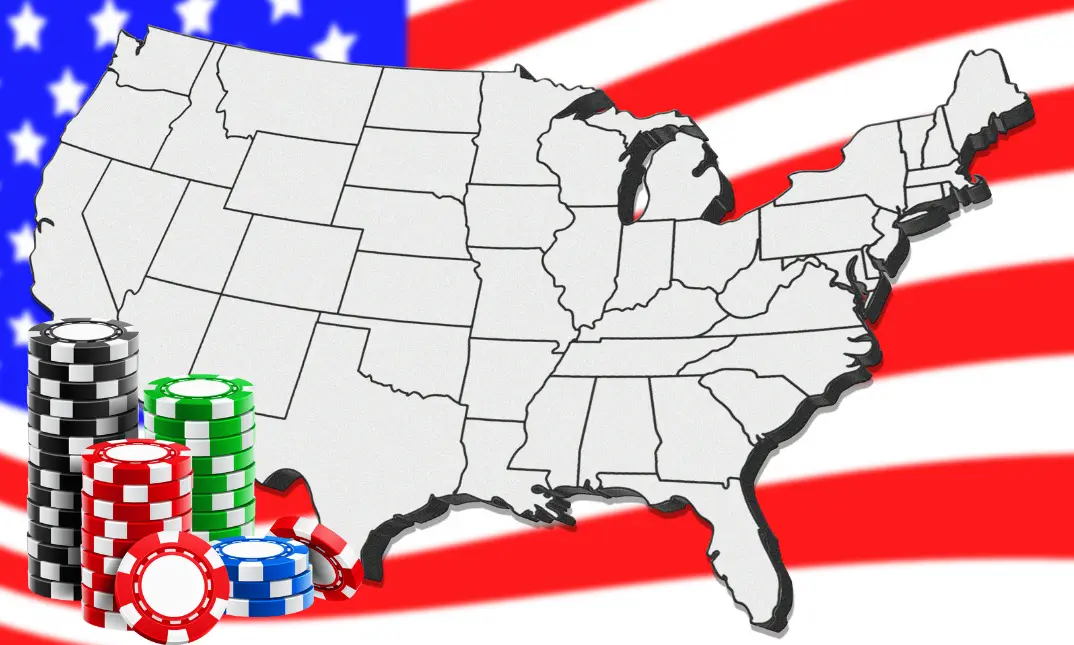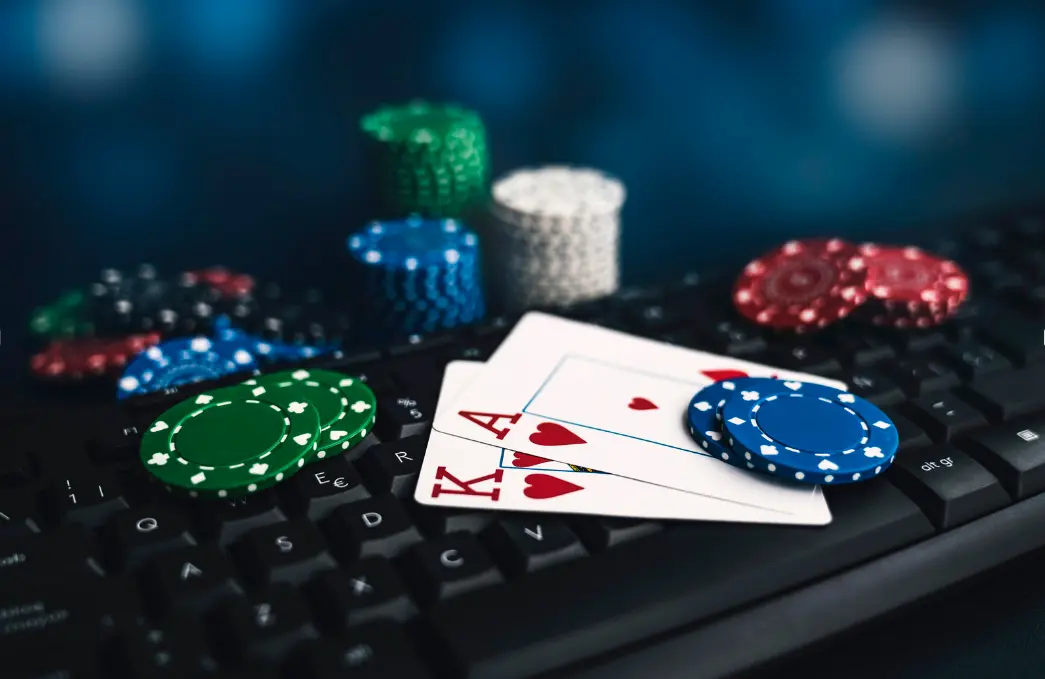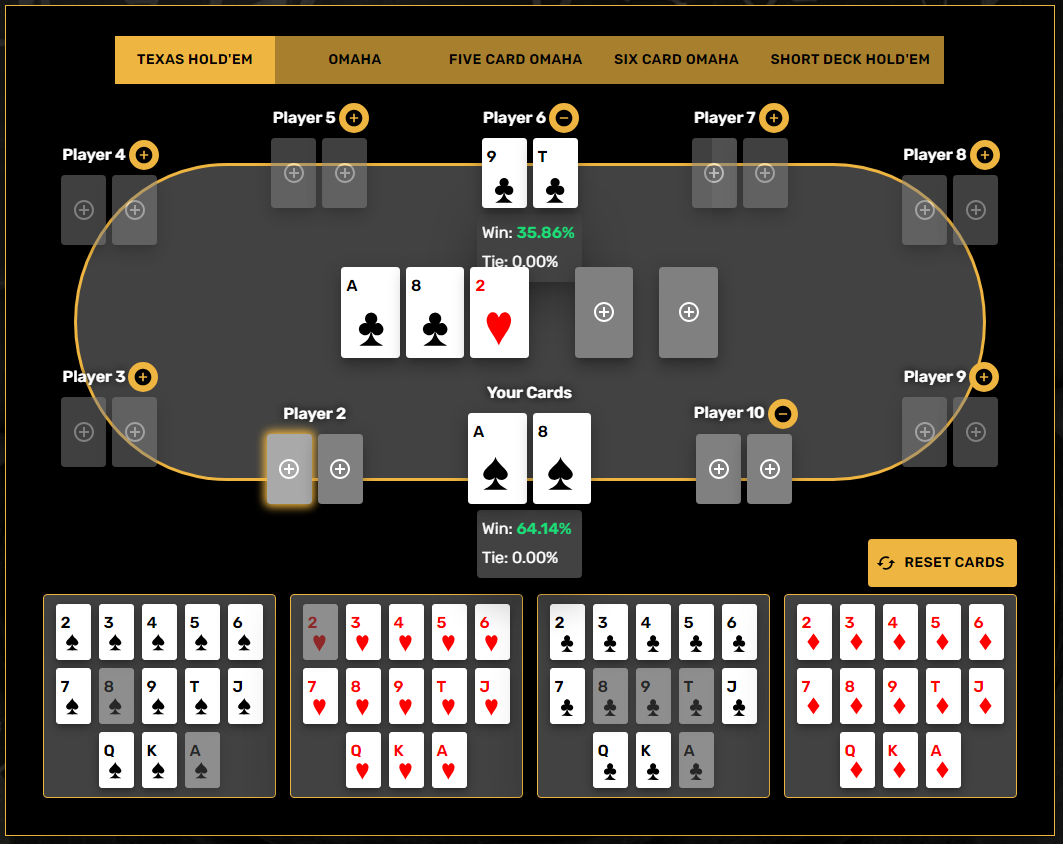Gambling has been an integral part of American culture, capturing the imagination of millions and offering both entertainment and potential financial rewards. Among the various forms of gambling, poker stands out as a premier card game, demanding skill, strategy, and luck. Televised poker tournaments with hole card cameras and commentary made poker appealing to the masses: Everyone could challenge professional players and have a chance to win life-changing money. The game’s popularity isn’t just limited to the U.S.; poker has a global following, with players from all over the world participating in online poker tournaments and cash games.
The rise of licensed offshore poker sites for US players has further fueled its growth, making it accessible to players irrespective of geography – operators with real money poker are plenty in New Zealand as well as online poker operators available to Canadians. However, with such widespread appeal comes the need for regulation, especially concerning the age of participants. In the U.S. the age at which one can legally participate in gambling and poker games varies by state, reflecting the diverse views and policies on gambling nationwide.
Legal Age for Different Formats of Gambling in the US
Poker stands unique amidst the gambling world. Some argue it’s a game of skill, while others see it firmly in the domain of chance. This distinction impacts its regulation. Some jurisdictions may view the skill-based nature of poker as a reason to have a lower age restriction than other gambling games. If poker is seen more as a competitive game of skill, like a sport, it might justify allowing younger participants. However, this is not universally the case, and in many areas, the age limit for poker aligns with other forms of gambling.
In the United States, most states have set their legal gambling age for poker in line with other forms of gambling, typically either 18 or 21. However, there are some exceptions and nuances to consider:
- Tribal Casinos: In states with tribal casinos, the age limits can vary. Some tribal casinos might allow players as young as 18 to participate in poker games even if the state’s age limit for other forms of gambling, such as slots or table games, is set at 21. The reasoning here is often tied to the fact that poker is seen as a game of skill and chance.
- Pari-Mutuel Betting vs. Poker: In some states, the legal age for pari-mutuel betting (like horse or dog racing) is set at 18, while casino games, including poker, are restricted to those 21 and older.
- Lotteries vs. Poker: Almost all states with a lottery set the legal age to purchase tickets at 18. However, the legal age to play poker, whether in a casino or sometimes even online, might be 21 in those same states.
Specific State Examples:
- Florida: The Sunshine State allows individuals 18 and older to play poker at licensed pari-mutuel facilities. However, when it comes to other casino games like slots, the age requirement is typically 21.
- Minnesota: Some tribal casinos in Minnesota allow players 18 and older to participate in poker games, while the age limit for other casino games is 21.
- Online Poker: In states that have legalized online poker, the age requirement often mirrors that of land-based casinos. However, it’s essential to check individual state regulations, as there can sometimes be distinctions between online and brick-and-mortar establishments.
List of States allowing 18+ poker
| State Name Poker | Options |
| California | Tribal Casinos, some card rooms |
| Florida | Poker and Bingo 18+ |
| Georgia | Offshore cruises |
| Idaho | Poker games in most casinos |
| Illinois | Charity poker rooms |
| Kentucky | Only at the Royal Social Club-it has eight poker tables, cash games, and tournaments. |
| Michigan | Tribal casinos and smaller charity poker rooms |
| Minnesota | The state legal gambling age is 18+ |
| Montana | The state allows 18+ to poker rooms |
| New Hampshire | Charity poker rooms |
| New York | Live poker rooms, rounders-style home games |
| Ohio | Small poker rooms |
| Oklahoma | The state allows 18+ to play poker, so all rooms, including premium ones |
| Oregon | Only in establishments allowing 18+ |
| Washington | The state allows 18+ to play poker |
| Wyoming | Small poker rooms |
List of States Allowing 21+ Poker
| State | Poker Options Available |
| Arizona | All poker rooms |
| Arkansas | Only one poker room is available in the state |
| Colorado | Four poker rooms |
| Connecticut | Two tribal casinos |
| Deleware | One live poker room and online poker options |
| Indiana | Several poker rooms |
| Iowa | Several casinos host live poker. |
| Kansas | Live poker rooms |
| Louisiana | Casinos |
| Maryland | Major casinos |
| Massachusetts | Only at the two available casinos |
| Mississippi | Multiple Casinos |
| Missouri | Varied options |
| Nevada | Online poker and numerous poker rooms |
| New Jersey | Live poker rooms, online poker options |
| New Mexico | Two available casinos |
| North Carolina | Only at Harrah’s Cherokee |
| North Dakota | A few small poker rooms |
| Pennsylvania | Online poke options, several live poker rooms |
| South Dakota | Only three live poker rooms |
| Texas | Plenty of poker rooms |
| West Virginia | Limited poker rooms, online poker legal, but no operator as of yet |
| Wisconsin | A few poker rooms |
States where poker is illegal
- Alabama
- Alaska
- Georgia
- Hawaii
- Idaho
- Nebraska
- South Carolina
- Tennessee
- Utah
- Vermont
- Virginia
Why Does Age Matter in Gambling and Poker?
Age is more than just a number for activities like gambling and poker. When state regulators determine the legal age for participation, they do so with the broader interest of society in mind. Let’s break down the importance of age restrictions in this context.
Protection of the Vulnerable
Youth, particularly those under a certain age, can be impressionable. Their brains are still developing, especially the frontal cortex, which is responsible for decision-making, impulse control, and weighing consequences. This means younger individuals may not fully grasp the risks associated with gambling or may be more susceptible to the allure of quick wins. Setting a legal age limit is an essential safeguard, acting as a barrier to protect them from potential harm or exploitation.
Ensuring Informed Decision Making
Gambling, and poker in particular, isn’t just about luck; it’s about strategy, reading your opponents, and making calculated risks. This requires a certain level of cognitive maturity. Older individuals are more likely to have experienced wins and losses in life, both inside and outside the poker table. They can better contextualize and handle the outcomes of a game. By setting an age restriction, regulators ensure that participants are more likely to approach the game with a level head and a clearer understanding of the stakes.
Financial Responsibility
With age often comes greater financial responsibility and understanding. Younger individuals might not yet have a firm grasp on the value of money or the consequences of financial loss. A 30-year-old, for instance, might better understand the implications of losing a month’s rent in a poker game compared to an 18-year-old. Age limits help ensure that players have some foundational financial management knowledge before they gamble.
Emotional and Psychological Well-being
Gambling can be an emotional roller coaster. Big wins can lead to euphoria, while losses can lead to feelings of regret, sadness, or even depression. Older individuals tend to have a better-developed emotional toolkit to handle these highs and lows. Age restrictions are, in part, a way to ensure that players have the emotional and psychological resilience to handle the outcomes of their gambling activities. Regulations are in place to make sure that operators take gambling addictions seriously by offering self-exclusion option to their players

Who Regulates Poker and Gambling in the US
In the U.S., the responsibility of regulating the gambling industry involves both federal and state-level entities. At the federal level, there is:
- The Federal Gaming Commission (FGC): While a significant portion of gambling regulation falls under state jurisdiction, there’s a need for federal oversight to manage interstate issues and ensure that state regulations adhere to broader federal principles. The FGC plays a pivotal role in this regard.
- The Unlawful Internet Gambling Enforcement Act (UIGEA): Passed in 2006, this act restricts gambling businesses from knowingly accepting payments related to unlawful internet gambling. It does not make online gambling illegal but focuses on the financial transactions involved.
- The Indian Gaming Regulatory Act (IGRA): Enacted in 1988, this federal law governs gaming operations on Indian lands. It established the framework for how Native American tribes could operate casinos and bingo halls.
At the State level, regulation happens through;
- State Gaming Commissions: Most states have their own gaming commissions that oversee all forms of gambling within the state, from casinos and horse racing to lottery operations. Examples include the Nevada Gaming Commission and the New Jersey Division of Gaming Enforcement. These commissions set the rules, provide licenses, and ensure that all operations adhere to state regulations.
- Lottery Commissions: In states that have lotteries, there’s often a separate commission that oversees operations, ensuring that games are fair and that the state’s share of proceeds is used as intended, often for educational or infrastructural purposes.
Tribal Gaming Authorities
Many Native American tribes operate casinos in the U.S., and they do so under the guidance of their tribal gaming authorities. These authorities work in conjunction with the federal government, as outlined by the IGRA, to ensure that operations are up to standard and that proceeds benefit tribal members.
Local Municipal Oversight
In some regions, especially those where gambling is a significant part of the local economy, there might be additional layers of oversight at the municipal level. Local governments might have a say in issuing permits, zoning decisions related to casino locations, or regulations on hours of operation.
Independent Testing Agencies
While not governmental entities, independent testing agencies play a crucial role in the industry. These organizations test and certify gaming equipment, ensuring that games are fair random, and operate as advertised. Examples include Gaming Laboratories International (GLI) and Technical Systems Testing (TST).
State Autonomy in Regulating Poker and Gambling
State autonomy in the U.S., especially in the context of poker and gambling, touches upon a foundational aspect of American governance. The United States is a federal republic, meaning power is divided between national and state governments. Let’s delve deeper into how this impacts the regulation of gambling and poker.
The Tenth Amendment and State Rights
The Tenth Amendment to the U.S. Constitution states: “The powers not delegated to the United States by the Constitution, nor prohibited by it to the States, are reserved to the States respectively, or to the people.” In layman’s terms, any power not specifically granted to the federal government by the Constitution is reserved for the states. This provision has paved the way for states to have a significant say in matters not explicitly addressed in the Constitution, including regulating gambling and poker.
Diversity in Cultural and Moral Views
The U.S. is a vast country with a rich tapestry of cultures, beliefs, and historical backgrounds. What’s socially and morally acceptable in Nevada, home to the gambling mecca of Las Vegas, might be viewed differently in a state like Utah, where cultural and religious beliefs tend to be more conservative. This diversity is mirrored in the varying approaches states take towards gambling. Some states see it as a legitimate form of entertainment and a valuable source of tax revenue, while others view it with caution, citing potential social ills or moral concerns.
Economic Considerations
The potential economic benefits of gambling can be significant. States that have embraced gambling often do so with an eye on the potential influx of tax revenue, job creation, and tourism boost. For instance, Atlantic City in New Jersey was partially revitalized due to its transformation into a gaming destination. Conversely, states might opt for tighter regulations if they believe the potential social costs, such as increased addiction or crime, outweigh the economic benefits.
State Experiments and Innovations
The autonomy granted to states can be seen as an opportunity for experimentation. States can tailor their regulations based on their unique demographics, needs, and challenges. Some might introduce innovative measures to promote responsible gambling, while others might focus on maximizing revenue. Over time, states can learn from each other, adopting best practices or steering clear of policies that didn’t deliver the desired outcomes.
The Fluid Nature of State Regulations
Because the authority to regulate gambling lies predominantly with the states, it’s not uncommon to see shifts in policies as societal views change or as states observe the outcomes of gambling regulations in their neighboring states. A state that was once reserved about gambling might loosen its regulations upon seeing the potential benefits reaped by a neighboring state.
In essence, the role of states in regulating poker and gambling reflects the U.S.’s federal structure and the diverse cultural, economic, and moral views held by its residents. This state autonomy ensures that regulations are tailored to each state’s unique needs and perspectives, leading to a diverse and ever-evolving patchwork of policies across the nation.
What happens if I’m an underage gambler in the US?
If you’re caught gambling underage in the United States, the consequences can be significant, affecting not only the underage individual but also the establishment where the gambling occurred. Here are some of the potential repercussions:
- Legal Consequences for the Underage Gambler:
- Fines: Many states impose fines on underage gamblers.
- Confiscation of Winnings: If an underage gambler wins money, the casino or gambling establishment will typically confiscate the winnings.
- Criminal Record: Depending on the state and the severity of the offense, an underage gambler might be charged with a misdemeanor, which could end up on their criminal record.
- Court-Ordered Programs: Some states may require underage gamblers to attend mandatory educational or intervention programs.
- Banishment: The underage individual may be banned from the gambling establishment for a set period or permanently.
- Consequences for the Gambling Establishment:
- Fines: Establishments caught allowing underage gambling can face substantial fines.
- License Jeopardy: The gambling establishment could risk having their gaming license suspended or revoked.
- Civil Liability: The establishment might be held civilly liable if an underage individual suffers harm (like significant financial loss or related issues).
- Increased Scrutiny: After an incident of underage gambling, the establishment will likely face increased scrutiny from regulatory bodies, potentially leading to more frequent inspections or audits.
- Repercussions for Employees: Employees who knowingly or negligently allow underage individuals to gamble might face consequences, including job loss, fines, or even criminal charges in severe cases.
- Social and Personal Consequences: Beyond the legal repercussions, being caught gambling underage can have personal consequences. This might include loss of trust from parents or guardians, potential academic repercussions if the individual is in school or college, or damage to one’s reputation.
- Future Gambling Opportunities: If an individual is caught gambling underage and is banned from a particular establishment or casino chain, it may impact their ability to gamble at those locations in the future, even after reaching the legal age.
Final thoughts
Understanding the complexities of gambling age regulations in the U.S. underscores the importance of awareness and adherence to local laws. Both poker and other gambling forms have diverse rules that reflect their unique natures. As such, individuals and establishments must remain informed to ensure responsible and legal participation in this popular pastime.









